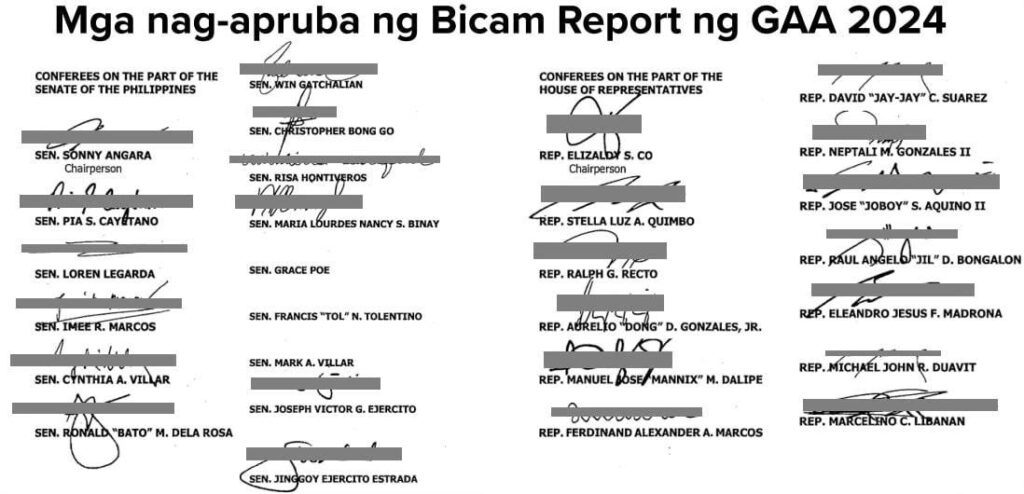The Commission on Elections (Comelec) should prove to millions of Filipino voters that no hanky-panky attended the May 12, 2025 midterm elections by acceding to the request of Gabriela partylist to investigate the matter of 18 million invalidated overvote cases.
However, Comelec Chairman George Erwin Garcia should not dismiss the complaint lest he be accused of gaslighting Filipino voters who reported discrepancies between their actual votes and the receipts generated by automated counting machines (ACMs.) “”Chairman Garcia’s insulting claim that voters simply ‘forgot’ their votes is not just a slap in the face—it’s a calculated attempt to deflect from Comelec’s massive electoral failures that have disenfranchised millions,” argued GABRIELA secretary-general Clarice Palce.
An inquiry is in order as Comelec’s own data show 18 million overvoting incidents nationwide, with no less than 3.3 million affecting the partylist vote. Palce insisted that these figures are an astronomical increase from the overvotes in previous elections and raise urgent questions about the integrity of the automated election system (AES) that Garcia manages. “Paano makakalimutan ng 18 milyong botante ang kanilang ibinoto? Hindi ito kapani-paniwala,” Palce stressed. “Is Chairman Garcia suggesting that millions of Filipinos collectively suffered from amnesia? This is not voter forgetfulness but a systemic failure that has silenced millions.”
“Doon po sa mga sinasabi na hindi tumutugma raw ang kanilang resibo as against doon sa balota ay wala kaming evidence or proof on that, dahil napakataas ang posibilidad na nakalimutan nila na iyon ang ibinoto nila… Dahil wala naman silang mapakita simply because wala naman pictures, ‘yung mismong resibo dahil bawal mag-picture,” Garcia explained. In retort, Palce said: “Ito ay malinaw na panlilinlang sa mga botante,” She added “Comelec bars voters from documenting discrepancies, then uses this same restriction to deny their complaints and blame the voters. This is institutional manipulation at its worst.”
Gabriela has received numerous testimonies from women voters whose receipts showed candidates they did not choose, or who were told their party-list votes were invalidated. The partylist warned that the 3.3 million invalidated party-list votes could have significantly altered the allocation of congressional seats, potentially affecting representation for marginalized sectors, especially women. Gabriela argued that the 3.3 million overvoting cases in the party-list vote are just an additional anomaly in a long list of election irregularities that COMELEC has consistently downplayed. “Questionable hash code versions, malfunctioning ACMs, sudden and anomalous vote shaving during national canvassing, misinformation and disinformation of voters—all these point to serious problems that Comelec refuses to acknowledge,” Palce concluded.
Gabriela’s complaint is but one of the many lodged before the Comelec by groups like Lente, Kontra Daya, PPCRV and other watchdogs perplexed by the sudden use of version 3.5 of the software rather than the approved version 3.4, leading to questions about the integrity of the software that could have been manipulated to affect the reading of ballots and the transmission of voting results. An “updated: software always carries new instructions that impact on the reading by the machine, the non-reading of certain names and partylists and the invalidation of targeted partylists. These are significant issues that have compelled various groups to demand a return to manual counting of ballots inasmuch as digital fraud can be committed through the fraudulent manipulation of software.
It is not only Gabriela who is seeking a thorough investigation of the conduct of the election aside from suspicions that certain candidates had been credited with 5 million “advance votes” in the same manner that the system used in the 2022 presidential elections had a 20-million vote dump barely 12 minutes after the polling precincts closed. Moreover, software fraud could conceivably reduce the votes for Makabayan Coalition and Bayan Muna. These are not idle issues, along with the massive vote-buying that happened in many provinces, with the buying rates for Bicol voters reported per town and city, with the going rate rising to P16,000 per vote in hotly-contested jurisdictions.
Then, of course, the Comelec motu proprio should have investigated the operations of the National Task Force to End Local Communist Armed Conflict (NTF-ELCAC) that mobilized paramilitary forces and deployed their henchmen in local government units (LGUs) to threaten Bayan Muna and Makabayan Coalition campaign workers, terrorize voters deemed to be supportive of progressive forces. On the other hand, Comelec allowed various doleout programs to continue during the campaign period, putting billions into the hands of voters courtesy of favored partylists without any hindrance. Comelec has not put to task the NTF-ELCAC even as National Security Adviser Eduardo Ano vowed to eliminate progressive partylists during the election. Garcia has not investigated Ano and his subalterns like Jonathan Malaya who have full control of the billions of pesos for their counterinsurgency and vote denial operations. Malacanang should have seen through the ruse of the NTF-ELCAC as a Duterte outfit and clipped its wings immediately, thus blocking its work as a machinery for Duterte bets. (DIEGO MORRA)




